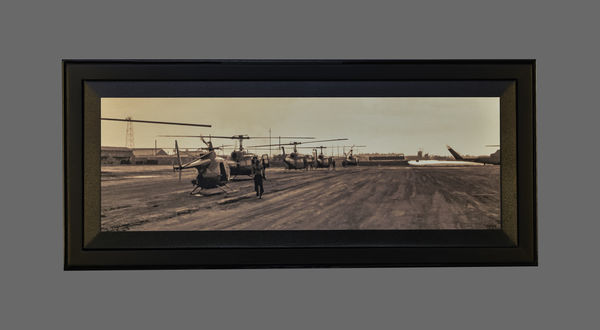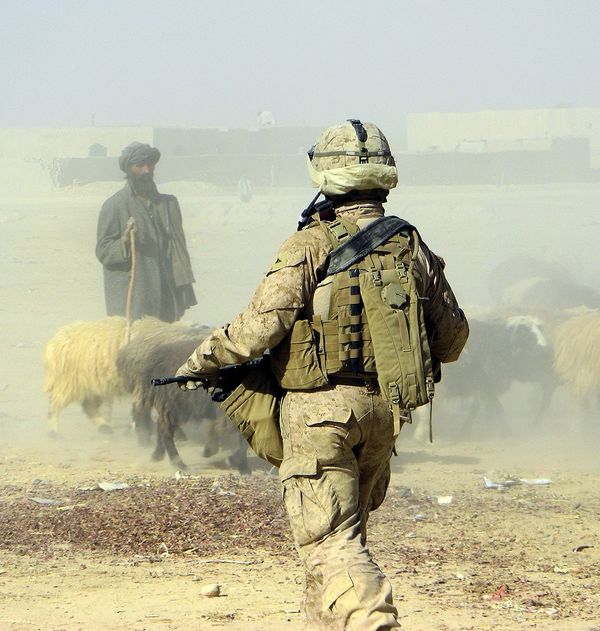Truth Be Told
Jun 20, 2018 10:41:43 #
davyboy wrote:
Could you please define again what is a snap shot
I don’t speak for him, but when I use the term snapshot, to me it means a photo taken by someone with little or very little artistic skills and/or lack of creativity.
It can be technically perfect, but it lacks: SUBJECT MATTER, COMPOSITION, AND LIGHTING.
MOST photos taken ARE SNAPSHOTS. How do you not know what a snapshot looks like? And while there is nothing wrong with snapshots, I would hope that on a photography forum at least, members would be aware of the differences.
Jun 20, 2018 11:11:54 #
For me its also a matter of "time". How much time do you have or are willing to spend at the computer doing PP. I'm still in the basic PP learning stages and I try to get my photos as close as I can right out of the camera, as imperfect as they still are, so I don't spend the time in PP. A couple extra minutes setting up can save me a lot of time on my computer, I usually don't have a lot of time for that so what ever I can do to start with what I want the better. So to each their own on when and where they want to spend the time and in what ways they want to change their creativity.
Jun 20, 2018 11:18:58 #
CatMarley wrote:
Can you show us any images to support YOUR assertion? If so, please enlighten us.
,
...don't want to hijack the thread, Cat, but I've been recovering some photos I took in Vietnam 45-odd years ago. Needless to say, the *vast* majority of what I was shooting (no pun!) back then were what we would call "snapshots." My skills were enough to get the subject in focus, maybe, and put the little needle in the center of the two lines...haha, somehow I figured out how to take advantage of faster shutter speeds, which affects my style to this day. So, to the OP's topic and subsequent comments, I happen to be one of those "croppers" who sees a nice final product in any given image (sometimes I see the crop before snapping the shutter, it depends) so have taken advantage of this method to help my nubile SLR slides from long ago. This example I've taken the trouble to print on canvas and stretch on my frame(s)...there is absolutely no way I could have seen this outcome when taking the shot, and, truth be told, I probably skipped over this one 10-15 times before finally going, "...hey, wait a minute!" Yes, an interesting subject, as all the choppers are cranked-up and running ('cept for that one tied down way in the back there), and we're going off to wage war...but recovering this pic was ALL done in post. No way SOOC...just no way, even the original, which I saw as flat and boring initially. I guess my point is, we all see things differently...sometimes finding gold, but panning a bit to get it. And post-production is key.

Jun 20, 2018 11:21:36 #
anotherview wrote:
Ditto: "I think the best use of post processing isn't correcting errors from sloppy technique, it's taking images that are the best they can be out of the camera, and making them even better."
I think we may be talking at cross purposes. We often have frames that have some really good elements that are spoiled by some unwanted thing, or by parts of the frame that are distracting from the real meat of the image, or there may be some defect of color or exposure that can be corrected to great advantage. THESE are the ones that can be made to fulfill their potential by judicious PP. But no amount of PP can convert an uninteresting subject with flat uninteresting lighting into a thing of beauty. On the other hand, even the most common object, when looked at in beautiful light from an unexpected angle and unusual composition, can make a very beautiful photograph.
Jun 20, 2018 11:25:08 #
A picture maker is a tool. In general it is no more or less important than a camera or a lens or a tripod or any other of the tools used in photography. What gives a tool its degree of importance is a person's goal. Then it's only that important to that person. If my goal is to win the world picture maker contest then it's the most important. But if my goal is just a quick "hey, look at what I saw" then it's of little to no importance.
Jun 20, 2018 11:25:47 #
"Lipstick and Paint make a women what she ain't" as the old saying goes. Digital photography and software have opened up an entirely new avenue for creative and artistic uses only limited by one's creative vision and talents.
Jun 20, 2018 11:29:20 #
chasgroh wrote:
, br ...don't want to hijack the thread, Cat, but... (show quote)
Sometimes a "snapshot" can make a stunning image. Here is a snapshot my son took with a cheap point and shoot in Afghanistan on patrol. Yes I wish he had gotten the whole soldier all the way don to include his boots, but nevertheless . . .
Jun 20, 2018 11:36:03 #
chasgroh wrote:
, br ...don't want to hijack the thread, Cat, but... (show quote)
And the matting you have done, which creates depth and importance to the image that it does not possess by itself..
Jun 20, 2018 11:45:30 #
Pablo8
Loc: Nottingham UK.
jaymatt wrote:
Since I didn’t quote anyone else, it should be obvious that I was referring to the original post.
Sorry, but it is NOT obvious to me. Too many people do not use the 'Quote Reply' system, that leaves other folk guessing.
Jun 20, 2018 11:59:26 #
It would take an expert to convert a sow's ear in to a silk purse, but it probably could be done although what's the point. Some people are going way over the edge here. Are you so insecure as a photographer that its necessary to elevate the role you played. After all the equipment did most of the work. Its not like the film days.
Read my original post. I'm not talking about incompetent use of tools. Its about fine tuning composition, sharpness, removing artifacts and distortion, zooming in, reducing noise, etc.,etc.. Your digital converter/editor is already doing that in case you didn't know. Have you noticed the profiles in LR. I'm talking about kicking up a notch or two. I've seen some of your images, don't act like you don't do processing, take credit for it if its very good.
Watch some professional processing training if I'm not getting through.
Read my original post. I'm not talking about incompetent use of tools. Its about fine tuning composition, sharpness, removing artifacts and distortion, zooming in, reducing noise, etc.,etc.. Your digital converter/editor is already doing that in case you didn't know. Have you noticed the profiles in LR. I'm talking about kicking up a notch or two. I've seen some of your images, don't act like you don't do processing, take credit for it if its very good.
Watch some professional processing training if I'm not getting through.
Jun 20, 2018 12:03:49 #
gvarner
Loc: Central Oregon Coast
It starts with artistic vision. If you don't have it before the photo, you won't have it after.
Jun 20, 2018 12:14:55 #
joer wrote:
It would take an expert to convert a sow's ear in ... (show quote)
I have been doing PP for 20 years or more. No need to accuse people of insecurity because they disagree with your premise,. I think there may be an inverse relationship between artistic imagination in photography and post processing. So many of the people doing it cannot even use the tools of the trade like a tablet and stylus. There must be a lot of dreadful PP going on if the amount of dreadful photography is any indication. I would not encourage it.
Jun 20, 2018 12:17:09 #
I have never seen PP change drastically the composition of a good photo. Perhaps the WB and a crop, but a good photographer gets a finely composed slice of time which can not be significantly altered in PP.
Jun 20, 2018 12:22:10 #
bgrn wrote:
For me its also a matter of "time". How ... (show quote)
Did you do your own darkroom work back in the film days? I find that I spend much less time doing PP than I spent in the darkroom developing film and making prints. I hear people talking about spending hours at the computer, but I find often 10 or 15 minutes is all it takes to do all I need to do to an image. I certainly try to get it as good as I can in the camera, but there are simple things you can do quickly in PP that make a big difference.
Jun 20, 2018 12:34:31 #
JohnSwanda wrote:
Did you do your own darkroom work back in the film days? I find that I spend much less time doing PP than I spent in the darkroom developing film and making prints. I hear people talking about spending hours at the computer, but I find often 10 or 15 minutes is all it takes to do all I need to do to an image. I certainly try to get it as good as I can in the camera, but there are simple things you can do quickly in PP that make a big difference.
Spending all that time in the darkroom with your enlarger was part of the charm - doing something that very few others could do! Now everyone with a computer just plugs his little cards into a slot and can do all sorts of abominations to images with software that everybody is using. Still, anything you can do quickly and easily and achieve great results means you had something great to start with that just needed a few tweaks! "Garbage in, garbage out" is still valid!
If you want to reply, then register here. Registration is free and your account is created instantly, so you can post right away.









